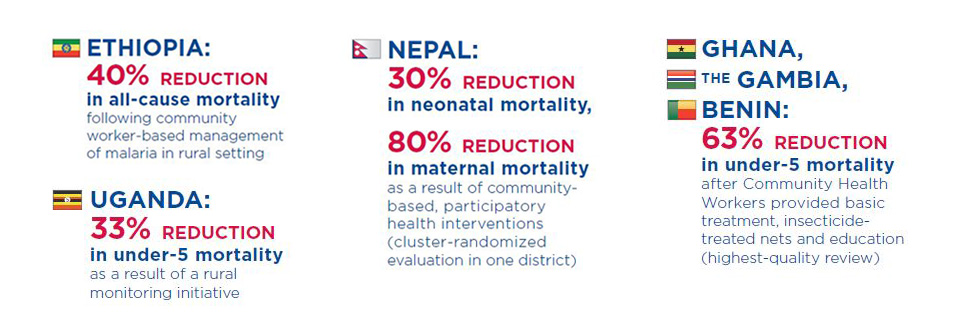“Groundbreaking” Report Links HSS Interventions to Health Outcomes
July 28, 2015 – USAID’s Office of Health Systems (OHS) released a major new report, which for the first time presents a significant body of evidence linking health systems strengthening interventions to measurable impacts on health outcomes. The Impact of Health Systems Strengthening on Health identifies 13 types of health systems strengthening (HSS) interventions with quantifiable effects.
Ariel Pablos-Mendez, Assistant Administrator for Global Health, Child and Maternal Survival Coordinator, opened the event. “We all agree on the importance of building sustainable health systems, but it’s harder to appreciate the importance of HSS investments at the country level. This exercise is allowing us to share the first wave of the impact of health systems strengthening interventions. This is paramount and it is an important step for us,” he said.
The report, prepared by a team from the Health Finance and Governance project, presents evidence on how to strengthen health system performance to achieve sustainable health improvements at scale, particularly toward ending preventable child and maternal deaths, fostering an AIDS-Free Generation, and protecting communities against infectious diseases. Many of the interventions straddle several health system functions, and often overlap or are implemented in combination.
“This groundbreaking report marks a milestone in our path towards identifying concrete evidence of the capacity of health systems strengthening interventions to save lives,” said Karen Cavanaugh, Director of OHS, at the launch.
The report draws on evidence identified in 66 systematic reviews, which together cover more than 1,500 individual peer-reviewed studies, on the effects of HSS interventions on health status and outcomes.
The interventions were found to be associated with reductions in mortality at different stages in the life cycle as well as reductions in morbidity for a range of conditions—acute and chronic, infectious and non-infectious, including diarrhea, malnutrition, low birth weight, and diabetes. HSS interventions are also associated with improvements in service utilization, financial protection, and quality service provision, all important outcomes on the pathway to improved health. The authors caution, however, that these interventions should not be perceived as “best buys.”
The authors also noted that while there is an absence of published systematic reviews on many well known HSS interventions, the absence doesn’t necessarily mean the interventions are not effective. Going forward, the field of HSS could benefit from a greater investment in research so that a larger body of HSS interventions could be studied, particularly investigations that examine the relationship between HSS interventions and impact- and outcome-level measures.
Read the Synopsis Read the Report




